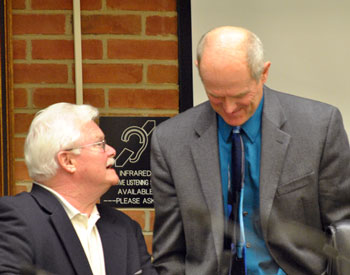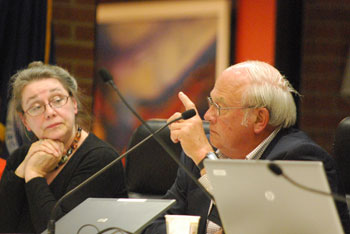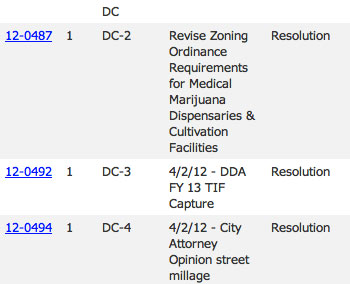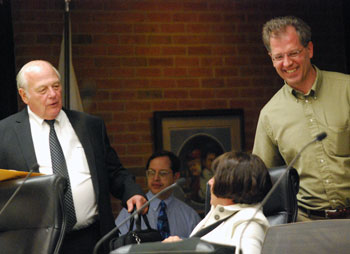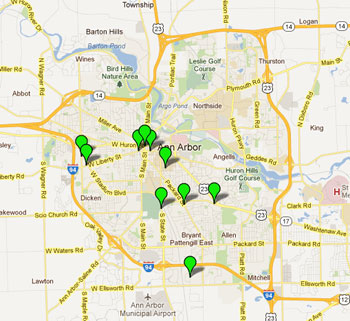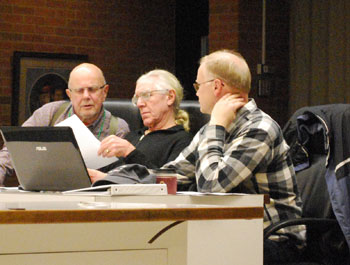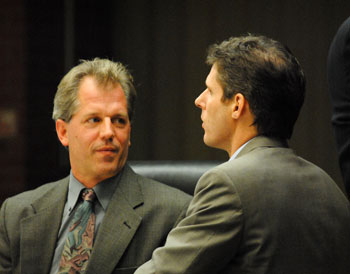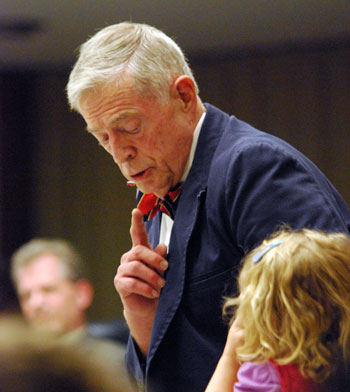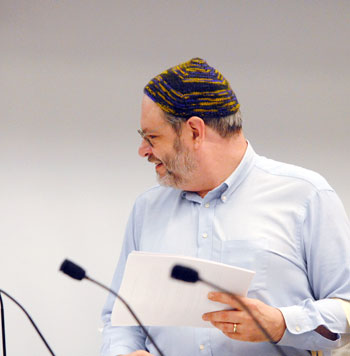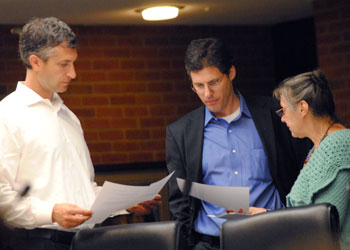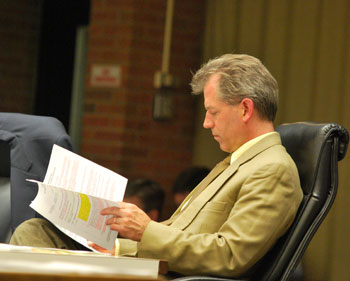Council Sails Through Flooded Agenda
Ann Arbor city council meeting (Oct. 1, 2012): The council worked through its densely packed agenda in well under two hours, even though six separate public hearings were held.
Some of the votes, all of which were unanimous, reflected non-action.
The council voted to table a revision to its medical marijuana licensing ordinance, having postponed it twice previously. Tabling is unlike a postponement to a date certain, and leaves open the possibility that the council might not ever take the question up again. However, Sabra Briere (Ward 1) indicated she intended to take up the medical marijuana ordinance again within six months.
The council has yet to act on recommendations from the city’s medical marijuana licensing board, made at the start of the year, to award licenses to 10 dispensaries. In the meantime, those dispensaries continue to operate. At the council’s Oct. 1 meeting, city attorney Stephen Postema indicated he would be creating a public document for the licensing board that would include a summary of pending legislation and court cases.
The council tabled a resolution on establishing a citizens committee to study the question of how to use proceeds from city-owned land sales. That tabling came at the request of the resolution’s sponsor, Mike Anglin (Ward 5), who had originally brought it forward at the council’s previous meeting.
The council also voted to extend by another 180 days a moratorium on digital billboards in the city – which the council first enacted back in April.
Three of the items on which the council took final action were at least indirectly related to stormwater. The council confirmed the appointment of the top area administrator whose department is responsible for stormwater management – Craig Hupy. Hupy’s appointment as public services area administrator comes after 26 years of service with the city.
The council also approved a $300,000 stormwater improvements component of a much larger $6.5 million street reconstruction project for Miller Avenue. The council authorized $50,000 to study the feasibility of opening up the railroad berm near Depot Street, which might allow floodwater to flow unimpeded to the Huron River on the other side. The study is also meant to cover the possibility of a non-motorized transportation connection under the berm, for pedestrians and bicyclists.
Related to water only in name was a tax abatement granted by the council to Barracuda Networks, which is relocating from Depot Street to downtown Ann Arbor and expecting to add 144 jobs.
The council also approved a raft of proposals related to land use. Winning approval were site plans for a Fiat dealership on West Stadium Boulevard and an expansion of the Food Gatherers facility on Carrot Way. The rezoning of a strip around the perimeter of a parcel at Miller and Maple, where a Speedway gas station will be constructed, got final approval.
A proposed townhouse project on Catherine Street got its rezoning as well as site plan approved. At the public hearing neighbors praised the project and developer Tom Fitzsimmons for what he had done to work with them.
The Plymouth Green Crossings project, which has already been built, got initial approval for revisions to its planned unit development (PUD) supplemental regulations.
The council also added 73 acres to the land protected under the city’s greenbelt program by approving the purchase of development rights on the Hornback farm in Salem Township.
The council weighed in on a state ballot question – which would require electric utility companies in Michigan to provide 25% of their power with renewable sources by the year 2025 – by passing a resolution in support of it.
One of the more significant pieces of news to come out of the meeting was an announcement from Stephen Kunselman (Ward 3) that he could not attend the council’s Oct. 15 meeting. That’s when the council is due again to take up the question of putting $60,000 towards a $300,000 local match for a $1.2 million federal grant that would fund a transportation connector study. It needs eight votes to pass. [Full Story]




